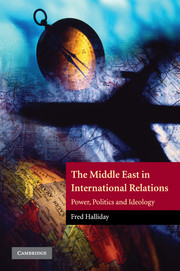Book contents
- Frontmatter
- Contents
- List of maps
- List of tables
- Acknowledgements
- Introduction: world politics, the Middle East and the complexities of area studies
- Part I Concepts, regions and states
- Part II History
- 3 The modern Middle East: state formation and world war
- 4 The Cold War: global conflict, regional upheavals
- 5 After the Cold War: the maturing of the Greater West Asian Crisis
- Part III Analytic issues
- Part IV Conclusion
- Appendices
- Select bibliography
- Index
5 - After the Cold War: the maturing of the Greater West Asian Crisis
Published online by Cambridge University Press: 05 September 2012
- Frontmatter
- Contents
- List of maps
- List of tables
- Acknowledgements
- Introduction: world politics, the Middle East and the complexities of area studies
- Part I Concepts, regions and states
- Part II History
- 3 The modern Middle East: state formation and world war
- 4 The Cold War: global conflict, regional upheavals
- 5 After the Cold War: the maturing of the Greater West Asian Crisis
- Part III Analytic issues
- Part IV Conclusion
- Appendices
- Select bibliography
- Index
Summary
‘Dear Professor, very nice to see you. But, before you sit down, just one question: is Communism really finished?’
Gulf minister to author on visit to region, April 1999Into the 1990s: international change, regional consequences
The course of events in the Middle East from the end of the Cold War (1991) to the early 2000s (2003) was, above all, framed by four dramatic, regional and, in their impact, global, developments: the Iraqi invasion of Kuwait on 2 August 1990, the signing of the Israeli–Palestinian Declaration of Principles on 13 September 1993; the al-Qa'ida attack on the USA on 11 September 2001; the Anglo-US occupation of Iraq in March–April 2003.
The first was an act of inter-state war that divided the region itself and drew external forces into regional conflict more directly than at any time since 1918. The Kuwait war of 1990–1, the Third Gulf war, prevented one possible course of history in that it checked Iraqi ambitions and restored the sovereignty of Kuwait. Yet while the immediate occasion for the conflict, the Iraqi occupation of Kuwait, was resolved, with the expulsion of Iraqi forces at the end of February 1991, the aftermath was to leave many issues unresolved. Not least among these was the international standing of Iraq itself, which was subjected to intrusive inspection and elaborate sanctions. The tinder of further conflicts remained, only to be concluded in 2003.
- Type
- Chapter
- Information
- The Middle East in International RelationsPower, Politics and Ideology, pp. 130 - 164Publisher: Cambridge University PressPrint publication year: 2005



